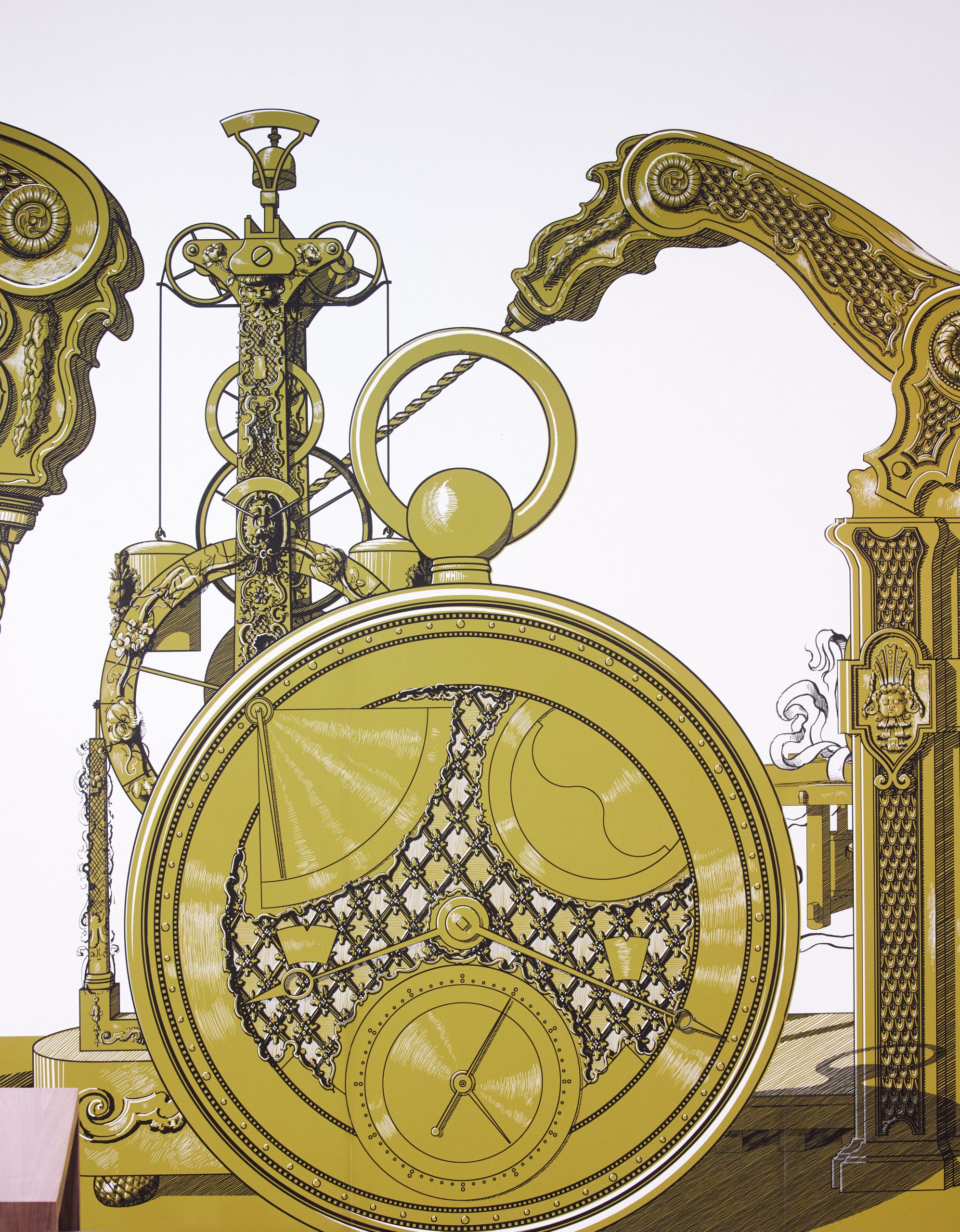
It makes sense that a luxury watchmaker such as Breguet would collaborate with an artist whose work centers around time. Or perhaps we should say that the U.K.-based Argentinian artist Pablo Bronstein deals with the “timeless.”
His intricate architectural drawings are hard to pin to any era. They can look completely contemporary or like some exquisitely preserved artifact dug up in an antiquarian hall of records—or a mélange of both. Elements of 18th-century buildings meld with modern styles to create an orderly utopian vision that is out of sync with our chaotic reality.
The work exudes a rich knowledge of history with a fantasist’s vision of a possible future—it’s sci-fi meets baroque meets another dimension. Bronstein’s oeuvre blurs the line between fine and decorative art, and he even delves into performance from time to time.
Pablo Bronstein admires a timepiece. Courtesy of Breguet.
At Frieze New York’s preview last week, one of Breguet’s artisans, Guillaume Braud, a “master of the guilloche,” was seated at a workstation. He was peering through a loupe and carefully working on a guillochage, the process of engraving a dial by hand (the intimate precise manner in which all Breguet dials are made).
Surrounding this tableau was Bronstein’s striking wallpaper work, Scenic Wallpaper with Important Machinery of the 18th Century, which depicts fantastic retro-futuristic machines with gears galore. Among the golden curiosities shown are an antique drill, a mechanical guillotine and a watch Breguet sold to British monarch George IV.
“It is based on scenic block-printed wallpapers such as those made by Zuber in the late 18th and early 19th century,” the artist said in a statement. “It is influenced by the machines represented in the encyclopedia of Diderot, and the early 18th century compulsion to decorate everything.”
Bronstein worked with the digital artist Skyla Bridges to create the work. “I then hand-decorated them,” he said. “This took many hours. We then laid them onto a ‘scene’ a bit like the wallpaper panoramas of the 19th century.”
The theatrical allure of Pablo Bronstein’s vision. Courtesy of Breguet.
Founded in 1775, Breguet blends old-world precision and craftsmanship with the modern era (and the ironic status of the watch as a digital-age luxury). The Swiss company’s new partnership with the Frieze art fairs is strategically sound—art collectors and fine watch enthusiasts are overlapping cross-sections of society.
Bronstein will unveil different Breguet commissions at the Frieze fairs in Seoul in September and London in October, as well as Los Angeles next year. They’re sure to incorporate the artist’s singular sense of timing.